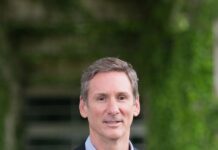PARIS — U.S. special envoy for climate John Kerry on Wednesday called on the world’s biggest polluters to make “key decisions” in the coming months that would rein in climate change.
Kerry, who is on a trip to Europe this week, spoke after a meeting in Paris with French President Emmanuel Macron at the Elysee presidential palace.
Kerry said the French president indicated that he wants to work with his U.S. counterpart “very closely not just on the reduction of emissions but particularly on the tools necessary to… achieve that goal.”
Kerry discussed preparations for a U.S.-hosted climate summit Apr. 22-23 that will virtually gather the leader of twenty countries that pump out 81% of the world’s greenhouse gas emissions.
The talks followed U.S. President Joe Biden’s decision to rejoin the Paris climate accord in the first hours of his presidency, reversing the U.S. withdrawal ordered by his predecessor Donald Trump.
“All countries that are emitting greenhouse gases must raise ambition,” Kerry said, speaking earlier on Wednesday in a joint news conference with French Finance Minister Bruno Le Maire.
Major emitters of greenhouse gases are preparing for the next U.N. climate summit taking place in Glasgow, U.K., in November. The summit aims to relaunch global efforts to keep rising global temperatures to below 1.5 degrees Celsius (2.7 degrees Fahrenheit) as agreed in the Paris accord.
“We can manage this. But we know that to do that, we must make key decisions now in the next eight months leading up to Glasgow. And Glasgow may well be our last best hope to be able to get the world on the track,” Kerry said.
Kerry would not comment on China’s new five-year plan that set last week new, but moderate energy and climate targets. China, the world’s biggest emitter of greenhouse gases, said it will reduce carbon emissions per unit of economic output by 18% over the next five years.
“We ’re not trying to single out one nation,” Kerry said.
“The point of the Paris agreement was everybody accepted the goal. The point of Paris (agreement) is that everybody said: we will get on this road. And the problem today is we’re not on that road sufficiently,” he added.




